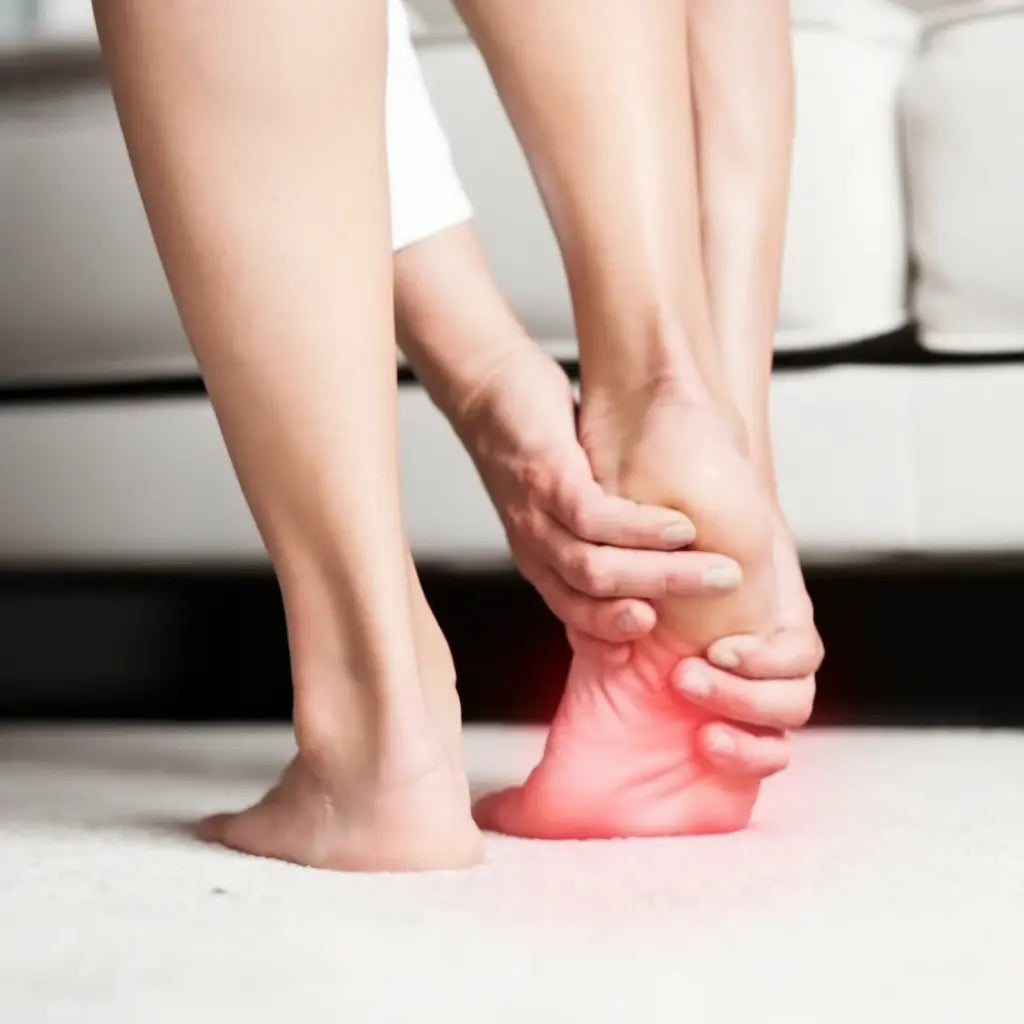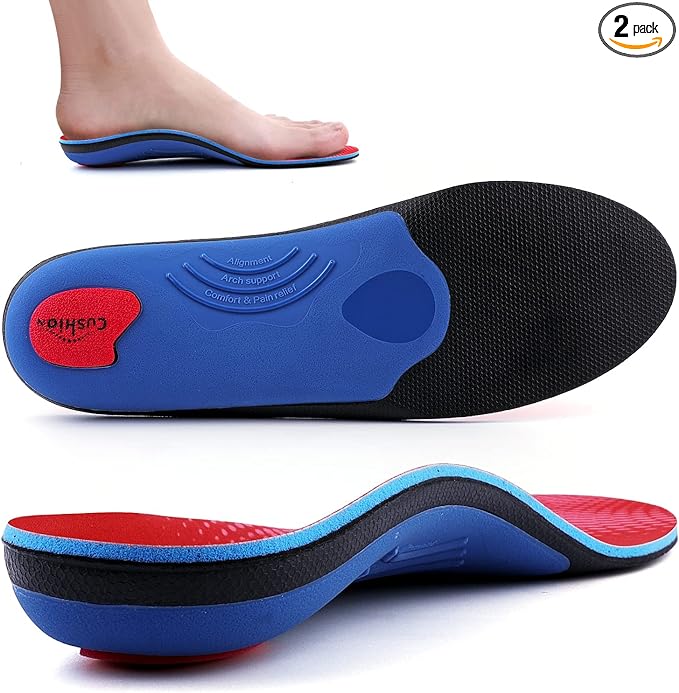Pain Under the Foot: Causes, Symptoms, and Treatment

Pain under the foot is a common problem that can have several different causes. This article reviews the most common causes, symptoms, and treatment options for pain under the foot.
Causes of pain under the foot: Heel spurs, Morton's neuroma and overuse
Pain under the foot can be caused by overuse from prolonged standing or walking. Many people experience pain in the ball of the foot or pain when putting weight on the foot. Common causes include:
- Metatarsalgia (pain in the forefoot)
- Plantar fasciitis (inflammation of the tendon under the foot)
- Morton's neuroma (nerve compression between the toes)
- Stress fractures
- Flat feet
- Incorrect foot position or walking technique
The risk of pain increases when the arch of the foot, tendons and ligaments are overstressed. This can cause stiffness and inflammation of the fascia (the thick tissue under the foot). People who stand a lot or exercise intensely can often experience pain on the inside of the foot or in the ball of the foot. A common condition behind this type of pain is heel spurs .
Symptoms of pain in the ball of the foot, forefoot and heel
Common symptoms include:
- Pain in the ball of the foot, especially with weight bearing
- Burning sensation in the forefoot
- Soreness and swelling under the foot
- Tingling or numbness
- Worsening pain when walking or running
- Sudden pain under the foot
Many people experience pain under the foot when they walk, especially in the ball of the foot. Symptoms can vary depending on the cause, but often people experience pain when putting weight on the foot. The nerves in the foot can also be affected, causing pain or numbness – often related to Morton's neuroma .
Diagnosis and treatment of pain under the foot
Pain under the foot is a common problem that is often caused by overuse, incorrect footwear, or reduced shock absorption.
The discomfort can be felt in the heel, arch, or forefoot and worsens when walking, running, or standing for long periods of time.
A correct diagnosis helps to determine the cause and choose the right treatment – from rest to the use of shock-absorbing insoles.
Physical examination
During an initial examination, a physiotherapist or doctor assesses the structure, swelling, and strain on the foot.
Treatment: Rest and relief to reduce inflammation and pain.
Advantage: Reduces stress on the foot and promotes recovery.
X-ray or MRI
Used to rule out injuries such as heel spurs, stress fractures, or tendonitis.
Treatment: Anti-inflammatory medication or targeted rest.
Advantage: Improves shock absorption and reduces pain during stress.
Ultrasound
Provides a clear image of soft tissues and tendons, which helps in the diagnosis of plantar fasciitis or tendon overload.
Treatment: Physical therapy and exercises to strengthen the muscles of the foot and increase mobility.
Advantage: Provides increased comfort and stability when walking and running.
Gait analysis
By analyzing how you walk, healthcare providers can detect misalignments such as overpronation or flat feet.
Treatment: Orthopedic insoles or shock-absorbing soles that distribute pressure evenly under the foot.
Benefit: Helps reduce pain and prevent future injuries.
The right support for recovery
To relieve pressure on the foot, specialists may recommend shock-absorbing soles or orthopedic insoles that provide extra support and even out the load.
By choosing the right foot support, you can often relieve pain caused by overload, improve posture, and reduce pressure when walking.

How shoe inserts and shock-absorbing soles can relieve pain under the foot
Shock-absorbing insoles from Komforten offer several benefits for people with foot pain:
- Reduces the load on the foot when walking and running
- Improves shock absorption, especially on hard surfaces
- Helps distribute pressure evenly across the entire foot
- Can be used in different types of shoes for consistent support
- Provides increased comfort during daily activities and training
For those who often have pain under the foot in the ball of the foot or in the arch of the foot, the right insole can make a big difference in everyday life. Read more about how arch support can prevent you from getting pain under the foot.
Buy nowConclusion: This is how to treat pain under the foot
Foot pain can have many different causes and can significantly impact daily life. By identifying the cause and using appropriate treatment methods, including supportive devices such as shock-absorbing insoles, many people can effectively manage their symptoms and improve foot function. It is important to consult a doctor or podiatrist for a proper diagnosis and individualized treatment plan. Related problems such as foot overuse can sometimes also be the underlying cause.
Frequently Asked Questions (FAQ)
Can overuse from running cause pain under the foot?
Yes, repeated strain from running can lead to pain under the foot, especially in the ball of the foot.
How long should I use shock absorbing insoles?
Shock-absorbing insoles can be used continuously to prevent and relieve pain. Consult a podiatrist for personalized recommendations.
When should I seek medical attention for pain under the foot?
Seek medical attention if the pain is persistent, worsens over time, or if you experience sudden, intense pain.
Can pain under the foot be a sign of something serious?
In most cases, pain under the foot is not serious, but persistent pain may indicate conditions that need treatment, such as nerve compression .
Are there exercises that can help with pain under the foot?
Yes, stretching the bottom of the foot, toe lifts, and foot circles can help strengthen the foot and reduce pain. Consult a physical therapist for a customized exercise program.

